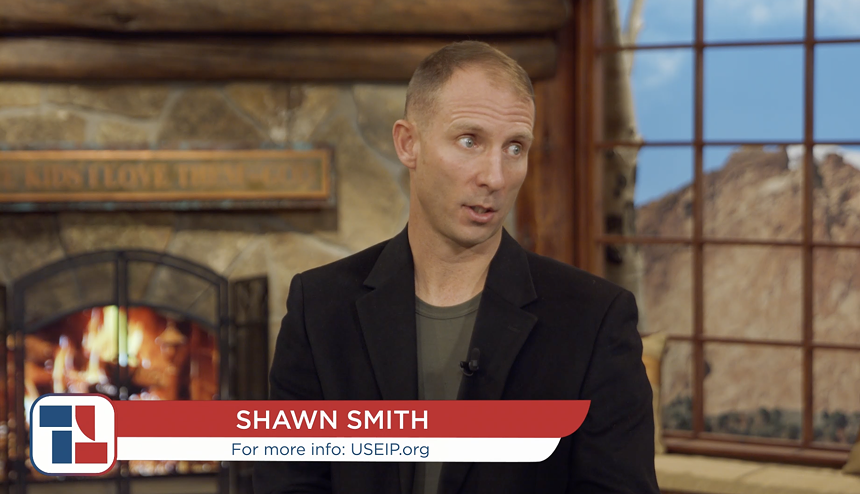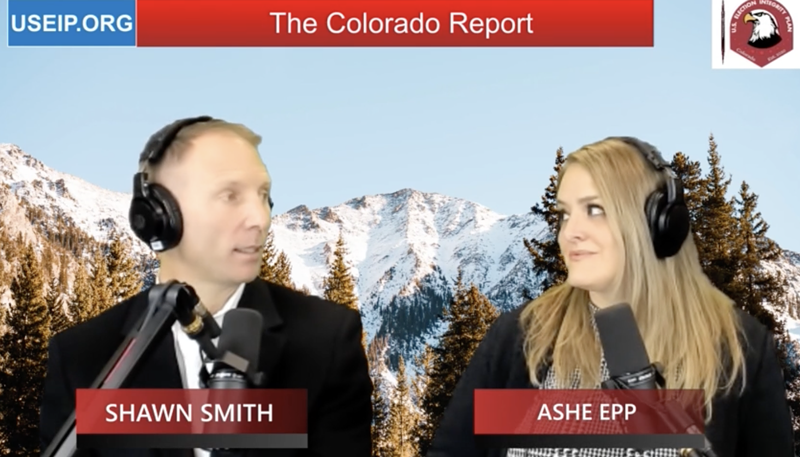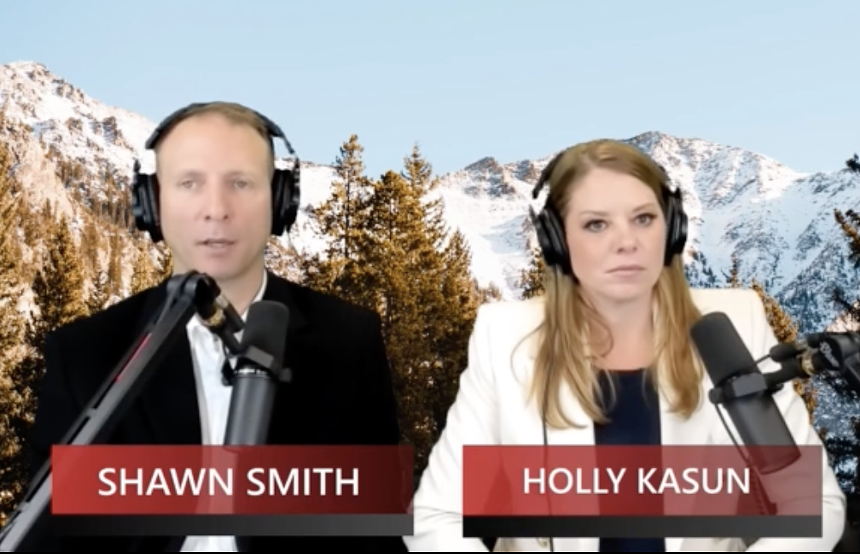However, human-rights organizations call their actions "voter intimidation," with members of the Colorado Montana Wyoming State Area Conference of the NAACP, League of Women Voters of Colorado and Mi Familia Vota all suing the trio behind USEIP in federal court, claiming the group has been intimidating and misinforming registered voters in response to the 2020 presidential election.
"The evidence will show that USEIP's canvassing efforts intentionally targeted those who did not consistently vote prior to 2020," attorney Amy Erickson alleged in court on Monday, July 15. "Defendants interrogated voters about whether they voted in the 2020 election. ... The evidence will demonstrate how USEIP's actions were intimidating to voters."
Epp, Kasun and Smith are accused of conspiring with USEIP leaders and canvassers to intimidate "low propensity voters" at their homes and obtain personal information about them. This allegedly included USEIP "agents" showing up armed to question people and take photos of their residences, which were shared among organizers, according to the plaintiffs.
Specifically, the trio is accused of violating the Voting Rights Act of 1965 and the Enforcement Act of 1871, also known as the Ku Klux Klan Act.
Epp, Kasun and Smith all claim to have done nothing to warrant the federal civil suit against them, insisting that their actions and the behavior of others working or canvassing for USEIP were lawful and appropriate.
In addition to having an alleged victim from Mesa County and a former USEIP volunteer set to testify, the plaintiffs point to comments and rhetoric used by the trio and other USEIP members in the past — both on social media and in their group "playbook" used for training canvassers and at public events — as proof of their intimidating tactics.
A statement made by Smith at a 2022 event in Castle Rock that included calls to "hang" anyone involved in election fraud was brought up by lawyers for the plaintiffs during questioning, as was a comment he made about how "sometimes, the old ways are the best ways."
"I stated I'm in favor of due process; I stated I've been accused of advocating violence, I'm not advocating violence; and I stated that I believe that anybody who's involved in election fraud deserves to hang," Smith countered, claiming that he said what he did because "if you’re involved in election fraud, then you are usurping the will and consent of the people," and that's an act of treason.
"There are punishments under federal statute for treason, which have been enacted by the federal government," Smith added. "Hanging is one of the methods of execution when treason has been found in a court of law through due process."
Lawyers for the defendants say that bringing up old comments and personal beliefs is an attempt to "smear" the trio and USEIP, and that the plaintiffs are "latching on to statements" and other details that have nothing to do with voter intimidation — including their support of the January 6, 2021, attack on the U.S. Capitol — to make them sound "nefarious, even dangerous," according to Kasun's lawyer, Cameron Powell.
U.S. District Court Judge Charlotte N. Sweeney had to repeatedly reel in the plaintiffs' lawyers over their rehashing of "unrelated" issues and "evidence" they kept presenting while questioning Smith and Epp.
"Get to something that resembled voter intimidation," Sweeney ordered multiple times. "Let's get to the part that's relevant."
At one point, the federal judge was forced to call counsel for both the plaintiffs' and defendants' attorneys to her bench to deliver a private tongue-lashing, which she gave after turning her microphone off.
"I want you to focus in on what we're talking about," Sweeney had told everyone earlier. "Whether these three individuals intimidated voters."
Powell described Kasun and USEIP as "a group of citizens acting in good faith, coming together...in exactly the type of grassroots initiative our founders cut their teeth on."
Smith's attorney, Scott Reisch, echoed similar statements when speaking about the retired U.S. Air Force veteran after Smith took the stand and began speaking about his military background and post-military career, which ultimately led him to become a 2020 election denier.
According to Smith, he began working with the FBI to look at "what data had been exfiltrated from national security organizations, including contractors and subcontractors, over a period of years prior to the inception of that team, and our job was to look and see what our foreign adversaries had exfiltrated, what they had access to, what conclusions and information would have been available."
"I've been exposed to extreme levels of detail about adversary tactics, both successful and attempted; about the nature of the organizations; what they were pursuing; how they've been successful," Smith claimed in court. "In light of that, when I looked at our voting systems and how they have been tested or not tested, and the assumptions being made by election officials, it was extraordinarily concerning."
"So this concern [about 2020 election fraud]...was concerning...not as just some right-wing whack-a-doo?" Smith's attorney asked him. "That's the elephant in the room."
Lawyers for the plaintiffs brought up the fact that Smith would canvass homes himself and was typically armed while doing it. Smith admitted as much, noting how he has a concealed handgun permit.

Smith had been seen carrying a gun while visiting registered voters in Colorado.
Facebook/Truth & Liberty
"We weren't attempting to identify employees," Epp insisted. "We wanted to make people effective once they raised their hands."
Both Epp and Smith formerly worked for Cause of America, a group formed by MyPillow CEO Mike Lindell that denied the 2020 presidential election results. In February, a federal judge ruled that Lindell would have to cough up $5 million after failing to prove that China interfered in the 2020 election to help President Joe Biden win. According to Epp, the USEIP's playbook is dedicated to Lindell after organizers met and discussed it with him during an event.
One point that Epp — who is representing herself — and the lawyers for her co-defandants are trying to drive home with Judge Sweeney is that people who were allegedly intimidated by USEIP canvassers did not come forward themselves.
It wasn't until the civil-rights groups began targeting the group and reaching out to the public and asking voters to come forward that they made their allegations known, according to the defendants.
"The plaintiffs weaponized their speculation, informing [voters] they're being intimidated," Powell told the judge, calling the efforts "pure bootstrapping," which left "no room for people to come forward to say they’re being intimidated."
The intimidation trial is scheduled to wrap up by the end of the week, with Sweeney expected to deliver a ruling by Friday, July 19.
The judge had been asked to recuse herself ahead of the proceedings after Smith's legal team cited a 2020 donation to President Joe Biden's campaign in a court motion, as well as statements she made about the 2016 election and how it motivated her to become a judge during an interview with University of Denver Magazine.
"I felt that, rather than sit and complain about what was going on, if I had more to give, I'd better step up," Sweeney said at the time. "It dawned on me that [being a judge] might be a good next step."
In addition to the proceedings, politics appeared to play a role in the courtroom's gallery on Monday, with roughly a dozen supporters for USEIP showing up to watch and snicker at things being said about Epp, Kasun and Smith — prompting a warning from Sweeney at one point.
"We're not going to have any laughing," she told the group. "This is a serious case."
The supporters later told Westword that they were "friends and family" of Epp, Kasun and Smith, and that several canvassers, who chose to remain anonymous, were among them.
Colorado Secretary of State Jena Griswold and the Centennial State's election process were mentioned multiple times during the first day of the trial, with Smith and Epp both saying that USEIP's canvassing efforts were directly related to faulty and "concerning" data put out by Griswold and her office after the 2020 election.
"Colorado elections are among the most secure and accessible in the nation," Griswold says in response to a Westword inquiry. "We must stand up to election denialism. I will always fight to protect our elections so that every voter can make their voice heard."













